- Home
- Patricia Briggs
Moon Called mt-1 Page 2
Moon Called mt-1 Read online
Page 2
Why the Alpha werewolf had chosen to buy land right next to me, I suspect, had as much to do with the werewolf's urge to dominate those they see as lesser beings as it did with the superb riverfront view.
He didn't like having my old single-wide bringing down the value of his sprawling adobe edifice-though, as I sometimes pointed out to him, my trailer was already here when he bought his property and built on it. He also took every opportunity to remind me I was only here on his sufferance: a walker being no real match for a werewolf.
In response to these complaints, I bowed my head, spoke respectfully to his face-usually-and pulled the dilapidated old Rabbit I kept for parts out into my back field where it was clearly visible from Adam's bedroom window.
I was almost certain he wouldn't eat my cat, but I'd leave her inside for the next week or so to give the impression I was cowed by his threat. The trick with werewolves is never to confront them straight on.
Medea mewed, purred, and wagged her stub tail when I set her down and filled her food dish. She'd come to me as a stray, and I'd thought for a while that some abusive person had chopped her tail off, but my vet said she was a Manx and born that way. I gave her one last stroke, then went to my fridge to scrounge something for dinner.
"I'd have brought Mac home if I thought Adam would leave him be," I told her, "but werewolves don't take to strangers very well. There's all sorts of protocols they insist upon when a new wolf comes into someone else's territory, and something tells me that Mac hasn't petitioned the pack. A werewolf won't freeze to death sleeping outside, however bad the weather. He'll be all right for a little while."
"Still," I said, as I got out some leftover spaghetti to nuke, "if Mac's in trouble, Adam might help him." It would be better to introduce the subject gently when I knew what the boy's story was.
I ate standing up and rinsed out the dish before curling up on the couch and turning on the TV. Medea yowled and jumped on my lap before the first commercial.
Mac didn't come in the next day. It was a Saturday, and he might not know I worked most every Saturday if there were cars to fix. Maybe he'd moved on.
I hoped Adam or one of his wolves hadn't found him before I'd had a chance to break the news of his presence more gently. The rules that allowed werewolves to live undetected among humankind for centuries tended to have fatal consequences for those who broke them.
I worked until noon, then called to tell the nice young couple that their car was a lost cause. Replacing the engine in it would cost them more than the car was worth. Bad news calls were my least favorite job. When Tad, my old assistant, had been around, I'd made him do them. I hung up almost as depressed as the hapless owners of the shiny, decked-out, well-loved car now destined for a boneyard.
I scrubbed up and got as much of the gunk out from under my nails as was going to come and started in on the never-ending paperwork that had also fallen to Tad. I was glad he'd gotten the scholarship that allowed him to head to the Ivy League college of his choice, but I really missed him. After ten minutes, I decided there was nothing that couldn't be put off until Monday. Hopefully by then I'd have an urgent repair, and I'd be able to put off the paperwork until Tuesday.
I changed into clean jeans and a T-shirt, grabbed my jacket, and headed to O'Leary's for lunch. After lunch I did some desultory grocery shopping and bought a small turkey to share with Medea.
My mother called on the cell as I was getting into the car and tried to guilt me into driving up to Portland for Thanksgiving or Christmas. I weaseled my way out of both invitations-I'd had enough of family gatherings in the two years I'd lived with her to last a lifetime.
It's not that they are bad, just the opposite. Curt, my stepfather, is a soft-spoken, no-nonsense sort of person-just the man to balance my mother. I later found out he hadn't known about me until I showed up on his doorstep when I was sixteen. Even so, he opened his house to me without question and treated me as if I were his own.
My mother, Margi, is vivacious and cheerfully flaky. It's not difficult at all envisioning her getting involved with a rodeo rider (like my father) any more than it would be difficult imagining her running off to join the circus. That she is president of her local PTA is far more surprising.
I like my mother and stepfather. I even like all of my half siblings, who had greeted my sudden appearance in their lives with enthusiasm. They all live together in one of those close-knit families that television likes to pretend is normal. I'm very happy to know people like that exist-I just don't belong there.
I visit twice a year so they don't invade my home, and I make certain that it isn't a holiday. Most of my visits are very short. I love them, but I love them better at a distance.
By the time I hung up, I felt guilty and blue. I drove home, put the turkey in the fridge to thaw, and fed the cat. When cleaning the fridge didn't help my mood, though I'm not sure why I expected it to, I got back in the car and drove out to the Hanford Reach.
I don't go out to the Reach often. There are closer places to run, or, if I feel like driving, the Blue Mountains aren't too far away. But sometimes my soul craves the arid, desolate space of the preserve-especially after I get through talking with my mother.
I parked the car and walked for a while until I was reasonably certain there was no one around. Then I took off my clothes and put them in the small daypack and shifted.
Werewolves can take as much as fifteen minutes to shift shape-and shifting is painful for them, which is something to keep in mind. Werewolves aren't the most friendly animals anyway, but if they've just shifted, it's a good policy to leave them alone for a while.
Walkers' shifting-at least my shifting, because I don't know any other walkers-is quick and painless. One moment I'm a person and the next a coyote: pure magic. I just step from one form into the next.
I rubbed my nose against my foreleg to take away the last tingle of the change. It always takes a moment to adjust to moving on four feet instead of two. I know, because I looked it up, that coyotes have different eyesight than humans, but mine is pretty much the same in either form. My hearing picks up a little and so does my sense of smell, though even in human form I've got better senses than most.
I picked up the backpack, now stuffed with my clothes, and left it under a bunch of scrub. Then I shed the ephemera of my human existence and ran into the desert.
By the time I had chased three rabbits and teased a couple in a boat with a close-up glimpse of my lovely, furred self on the shore of the river, I felt much better. I don't have to change with the moon, but if I go too long on two feet I get restless and moody.
Happily tired, in human shape, and newly clothed, I got into my car and said my usual prayer as I turned the key. This time the diesel engine caught and purred. I never know from day to day if the Rabbit will run. I drive it because it is cheap, not because it is a good car. There's a lot of truth in the adage that all cars named after animals are lemons.
On Sunday I went to church. My church is so small that it shares its pastor with three other churches. It is one of those nondenominational churches so busy not condemning anyone that it has little power to attract a steady congregation. There are relatively few regulars, and we leave each other mostly alone. Being in a unique position to understand what the world would be like without God and his churches to keep the worst of the evil at bay, I am a faithful attendee.
It's not because of the werewolves. Werewolves can be dangerous if you get in their way; but they'll leave you alone if you are careful. They are no more evil than a grizzly bear or great white shark.
There are other things, though, things that hide in the dark, that are much, much worse-and vampires are only the tip of the iceberg. They are very good at hiding their natures from the human population, but I'm not human. I know them when I meet them, and they know me, too; so I go to church every week.
That Sunday, our pastor was sick and the man who replaced him chose to give a sermon based upon the scripture in Exodus 22: "Tho
u shall not suffer a witch to live." He extended the meaning to encompass the fae, and from him rose a miasma of fear and rage I could sense from my seat. It was people like him who kept the rest of the preternatural community in hiding almost two decades after the lesser fae were forced into the public view.
About thirty years ago, the Gray Lords, the powerful mages who rule the fae, began to be concerned about advances in science-particularly forensic science. They foresaw that the Time of Hiding was coming to an end. They decided to do damage control, and see to it that the human's realization of the world's magic was as gentle as possible. They awaited the proper opportunity.
When Harlan Kincaid, the elderly billionaire real estate magnate, was found dead near his roses with a pair of garden shears in his neck, suspicion fell upon his gardener Kieran McBride, a quiet-spoken, pleasant-faced man who had worked for Kincaid, a prize-winning gardener himself, for a number of years.
I saw bits of the trial, as most Americans did. The sensational murder of one of the country's wealthiest men, who happened to be married to a beloved, young actress, ensured the highest ratings for the networks.
For several weeks the murder occupied the news channels. The world got to see Carin Kincaid, with tears flowing down her California-tanned cheeks, as she described her reaction to finding her dead husband lying next to his favorite rosebush-which had been hacked to pieces. Her testimony was Oscar-quality, but she was upstaged by what happened next.
Kieran McBride was defended by an expensive team of lawyers who had, amid much publicity, agreed to work pro bono. They called Kieran McBride to the stand and skillfully baited the prosecuting attorney into asking McBride to hold the garden shears in his hand.
He tried. But after only an instant his hands began to smoke before dropping them. At his attorney's request he showed the blistered palms to the jury. He couldn't have been the murderer, the lawyer told the judge, jury, and the rest of the world, because Kieran McBride was fae, a garden sprite, and he couldn't hold cold iron, not even through thick leather gloves.
In a dramatic moment, McBride dropped his glamour, the spell that kept him appearing human. He wasn't beautiful, just the opposite, but anyone who has seen a Shar-pei puppy knows there is great charisma in a certain sort of ugliness. One of the reasons McBride had been chosen by the Gray Lords was because garden sprites are gentle folk and easy to look at. His sorrowful, overly large brown eyes made the covers of magazines for weeks opposite less-than-flattering pictures of Kincaid's wife, who was later convicted of her husband's death.
And so the lesser fae, the weak and attractive, revealed themselves at the command of the Gray Lords. The great and terrible, the powerful or powerfully ugly, stayed hidden, awaiting the reaction of the world to the more palatable among them. Here, said the Gray Lord's spin doctors who had been McBride's lawyers, here are a hidden people: the gentle brownie who taught kindergarten because she loved children; the young man, a selkie, who risked his life to save the victims of a boating accident.
At first it looked as though the Gray Lords' strategy would pay off for all of us preternaturals, fae or not. There were New York and L.A. restaurants where the rich and famous could be waited on by wood sprites or muryans. Hollywood moguls remade Peter Pan using a boy who could actually fly and a real pixie for Tinkerbell-the resulting film made box office records.
But even at the beginning there was trouble. A well-known televangelist seized upon fear of the fae to increase his grip over his flock and their bank accounts. Conservative legislators began making noise about a registration policy. The government agencies began quietly making lists of fae they thought they could use-or who might be used against them, because throughout Europe and parts of Asia, the lesser fae were forced out of hiding by the Gray Lords.
When the Gray Lords told Zee, my old boss, that he had to come out five or six years ago, Zee sold the garage to me and retired for a few months first. He'd seen what happened to some of the fae who tried to continue their lives as if nothing had happened.
It was all right for a fae to be an entertainer or a tourist attraction, but the brownie kindergarten teacher was quietly pensioned off. No one wanted a fae for a teacher, a mechanic, or a neighbor.
Fae who lived in upscale suburbs had windows broken and rude graffiti painted on their homes. Those who lived in less law-abiding places were mugged and beaten. They couldn't defend themselves for fear of the Gray Lords. Whatever the humans did to them, the Gray Lords would do worse.
The wave of violence prompted the creation of four large reservations for fae. Zee told me that there were fae in the government who saw the reservations as damage control and used fair means and foul to convince the rest of Congress.
If a fae agreed to live on a reservation, he was given a small house and a monthly stipend. Their children (like Zee's son Tad) were given scholarships to good universities where they might become useful members of society… if they could find jobs.
The reservations sparked a lot of controversy on both sides. Personally, I thought the Gray Lords and the government might have paid more attention to the innumerable problems of the Native American reservations-but Zee was convinced the reservations were only a first step in the Gray Lords' plans. I knew just enough about them to admit he might be right-but I worried anyway. Whatever ills it created, the reservation system had lessened the growing problems between the human and fae, at least in the US.
People like the visiting pastor, though, were proof that prejudice and hatred were alive and well. Someone behind me muttered that he hoped Pastor Julio recovered before next week, and a round of mumbled agreement cheered me a little.
I've heard of people who've seen angels or felt their presence. I don't know if it is God or one of his angels I sense, but there is a welcoming presence in most churches. As the pastor continued with his fear-driven speech, I could feel that spirit's growing sadness.
The pastor shook my hand as I left the building.
I am not fae, broad though that term is. My magic comes from North America not Europe, and I have no glamour (or need of it) to allow me to blend with the human population. Even so, this man would have hated me had he known what I was.
I smiled at him, thanked him for the service, and wished him well. Love thy enemies, it says in the scriptures. My foster mother always added, "At the very least, you will be polite to them."
CHAPTER 2
Mac the werewolf was sitting on the step by the office door when I drove up Monday morning.
I kept my face impassive and showed none of the surprisingly fierce satisfaction I felt, just handed him a heavy sack of fast-food breakfast sandwiches so I could get my key out and open the door. I'd been raised around wild animals; I knew how to tame them. A hearty welcome would send him off faster than harsh words if I judged him aright, but food was always a good lure.
"Eat," I told him as I set out for the bathroom to change into work clothes. "Save me one-the rest are for you."
All but one were gone when I came back.
"Thank you," he told me, watching my feet.
"You'll work it off. Come on, help me get the garage doors up." I led the way through the office and into the garage. "There's nothing pending today so we can work on my project Bug."
The Beetle was unprepossessing at the moment, but when I was finished it would be painted, polished, and purring like a kitten. Then I'd sell it for twice what I had put into it and find another car to resurrect. I made almost half my income refurbishing old VW classics.
We'd worked a few hours in companionable silence when he asked to use the phone to make a long-distance call.
"Long as it's not to China," I said, coaxing a bolt held in place by thirty-odd years of rust.
I didn't sneak over to the office door to listen in. I don't make a practice of eavesdropping on private conversations. I don't have to. I have very good hearing.
"Hello," he said. "It's me."
My hearing was not so good, however, that I could
hear the person he was talking to.
"I'm fine. I'm fine," he said quickly. "Look I can't talk long." Pause. "It's better you don't know." Pause. "I know. I saw a news report. I don't remember anything after we left the dance. I don't know what killed her or why it didn't kill me."
Ah, no, I thought.
"No. Look, it's better just now if you don't know where I am." Pause. "I told you, I don't know what happened. Just that I didn't kill her." Pause. "I don't know. I just want you to tell Mom and Dad I'm okay. I love them-and I'm looking for the ones who killed her. I have to go now." Pause. "I love you, too, Joe."
There were a dozen stories that could account for the half of his conversation that I heard. Two dozen.
But the most prevalent of the cautionary tales werewolves tell each other is what happens the first time a werewolf changes if he doesn't know what he is.
In my head, I translated Mac's half of the conversation into a picture of a boy leaving a high school dance to make out with his girlfriend under the full moon, not knowing what he was. New werewolves, unless they have the guidance of a strong dominant, have little control of their wolf form the first few times they change.
If Mac were a new werewolf, it would explain why he didn't notice that I was different from the humans around. You have to be taught how to use your senses.
Here in the US, most werewolves are brought over by friends or family. There is a support structure to educate the new wolf, to keep him and everyone around him safe-but there are still the occasional attacks by rogue werewolves. One of the duties of a pack is to kill those rogues and find their victims.
Despite the stories, any person bitten by a werewolf doesn't turn into another werewolf. It takes an attack so vicious that the victim lies near death to allow the magic of the wolf to slip past the body's immune system. Such attacks make the newspapers with headlines like "Man Attacked by Rabid Dogs." Usually the victim dies of the wounds or of the Change. If he survives, then he recovers quickly, miraculously-until the next full moon, when he learns that he didn't really survive at all. Not as he had been. Usually a pack will find him before his first change and ease his way into a new way of life. The packs watch the news and read the newspapers to prevent a new wolf from being alone-and to protect their secrets.

 Wolfsbane
Wolfsbane When Demons Walk
When Demons Walk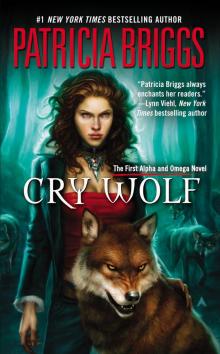 Cry Wolf
Cry Wolf On the Prowl
On the Prowl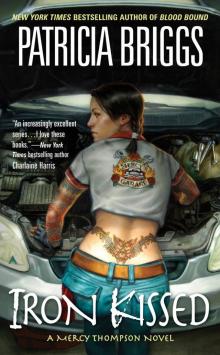 Iron Kissed
Iron Kissed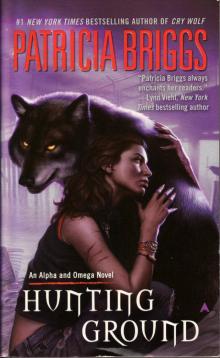 Hunting Ground
Hunting Ground Patricia Briggs Mercy Thompson: Hopcross Jilly
Patricia Briggs Mercy Thompson: Hopcross Jilly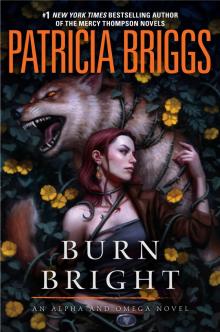 Burn Bright
Burn Bright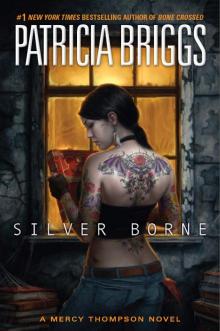 Silver Borne
Silver Borne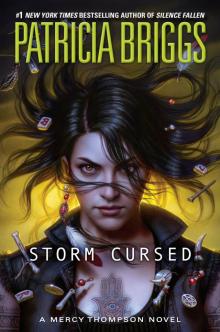 Storm Cursed
Storm Cursed Shifting Shadows
Shifting Shadows Frost Burned
Frost Burned River Marked
River Marked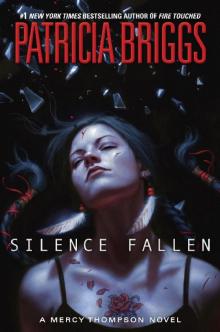 Silence Fallen
Silence Fallen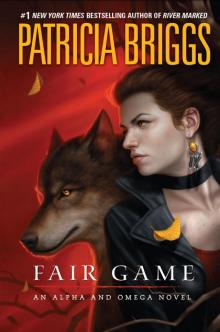 Fair Game
Fair Game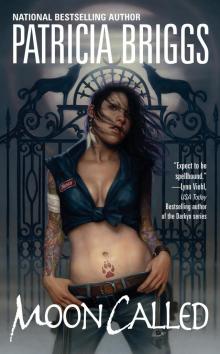 Moon Called
Moon Called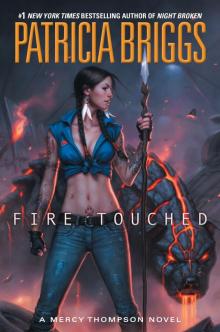 Fire Touched
Fire Touched Dead Heat
Dead Heat Blood Bound
Blood Bound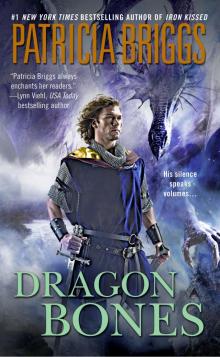 Dragon Bones
Dragon Bones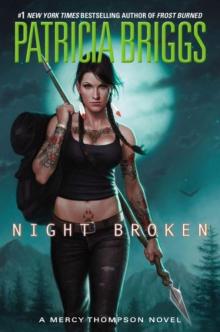 Night Broken
Night Broken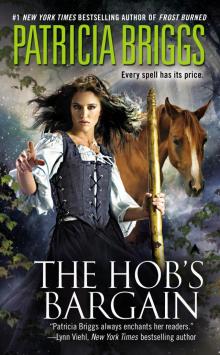 The Hobs Bargain
The Hobs Bargain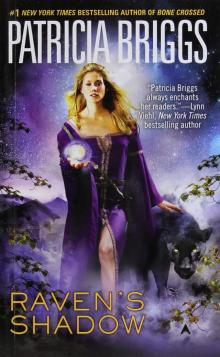 Ravens Shadow
Ravens Shadow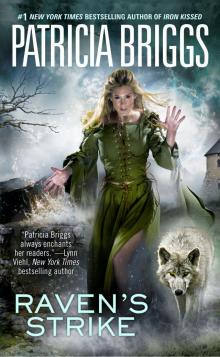 Ravens Strike
Ravens Strike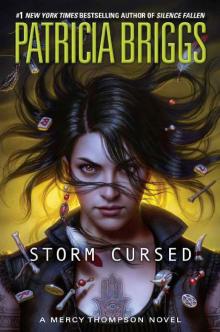 Storm Cursed (A Mercy Thompson Novel)
Storm Cursed (A Mercy Thompson Novel)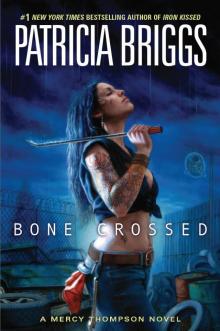 Bone Crossed
Bone Crossed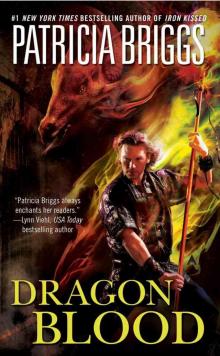 Dragon Blood
Dragon Blood Smoke Bitten: Mercy Thompson: Book 12
Smoke Bitten: Mercy Thompson: Book 12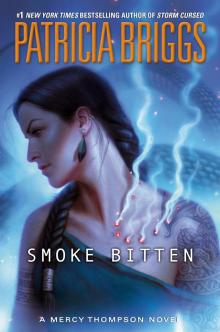 Smoke Bitten
Smoke Bitten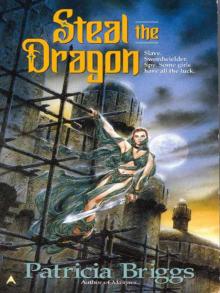 Steal the Dragon
Steal the Dragon 0.5 On The Prowl (alpha and omega)
0.5 On The Prowl (alpha and omega) Alpha and Omega
Alpha and Omega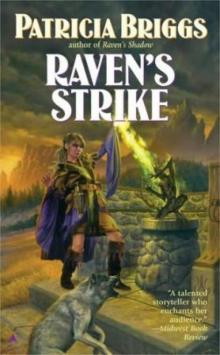 Raven's Strike rd-2
Raven's Strike rd-2![[Mercy 03] - Iron Kissed Read online](http://i1.bookreadfree.com/i/03/24/mercy_03_-_iron_kissed_preview.jpg) [Mercy 03] - Iron Kissed
[Mercy 03] - Iron Kissed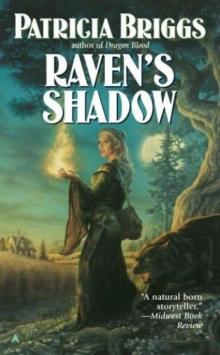 Raven's Shadow rd-1
Raven's Shadow rd-1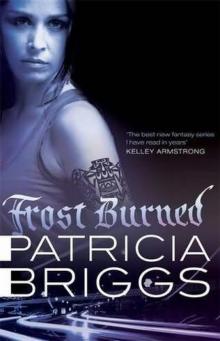 Frost Burned mt-7
Frost Burned mt-7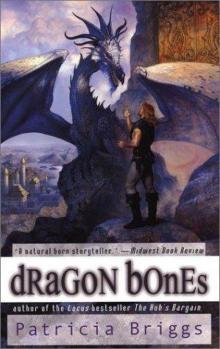 Dragon Bones h-1
Dragon Bones h-1 Shifting Shadows: Stories from the World of Mercy Thompson
Shifting Shadows: Stories from the World of Mercy Thompson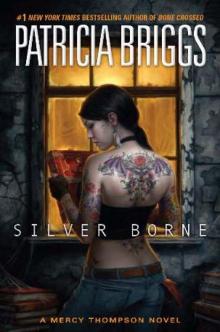 Silver Borne mt-5
Silver Borne mt-5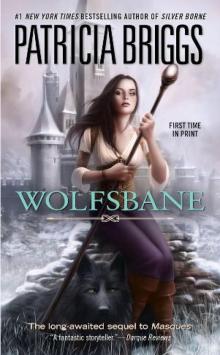 Wolfsbane s-2
Wolfsbane s-2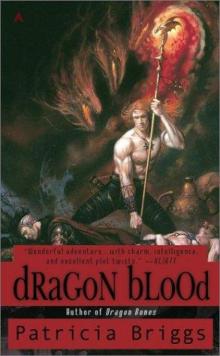 Dragon Blood h-2
Dragon Blood h-2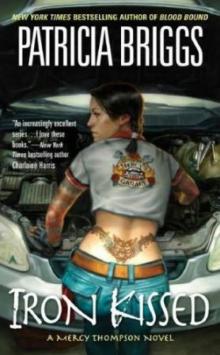 Iron Kissed mt-3
Iron Kissed mt-3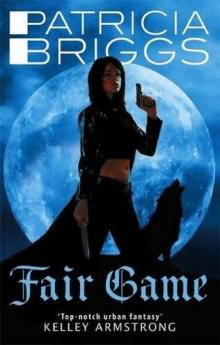 Fair Game aao-3
Fair Game aao-3 Masques s-1
Masques s-1![[Hurog 01] - Dragon Bones Read online](http://i1.bookreadfree.com/i1/04/03/hurog_01_-_dragon_bones_preview.jpg) [Hurog 01] - Dragon Bones
[Hurog 01] - Dragon Bones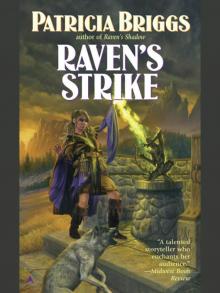 Raven s Strike
Raven s Strike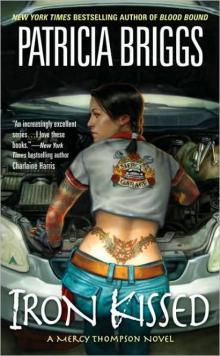 Mercedes Thompson 03: Iron Kissed
Mercedes Thompson 03: Iron Kissed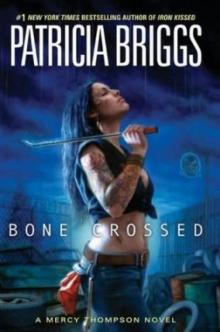 Bone Crossed mt-4
Bone Crossed mt-4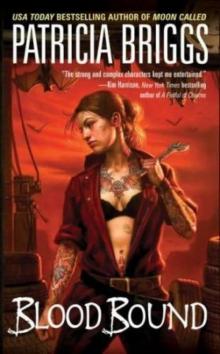 Blood Bound mt-2
Blood Bound mt-2![[Mercy 01] - Moon Called Read online](http://i1.bookreadfree.com/i2/04/09/mercy_01_-_moon_called_preview.jpg) [Mercy 01] - Moon Called
[Mercy 01] - Moon Called River Marked mt-6
River Marked mt-6 The Mercy Thompson Collection
The Mercy Thompson Collection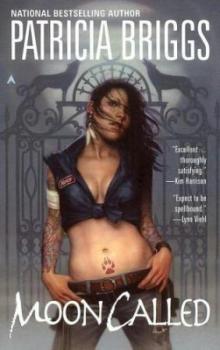 Moon Called mt-1
Moon Called mt-1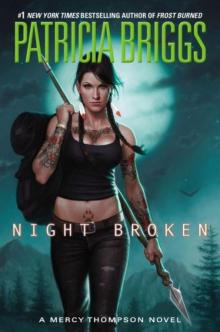 Mercy Thompson 8: Night Broken
Mercy Thompson 8: Night Broken